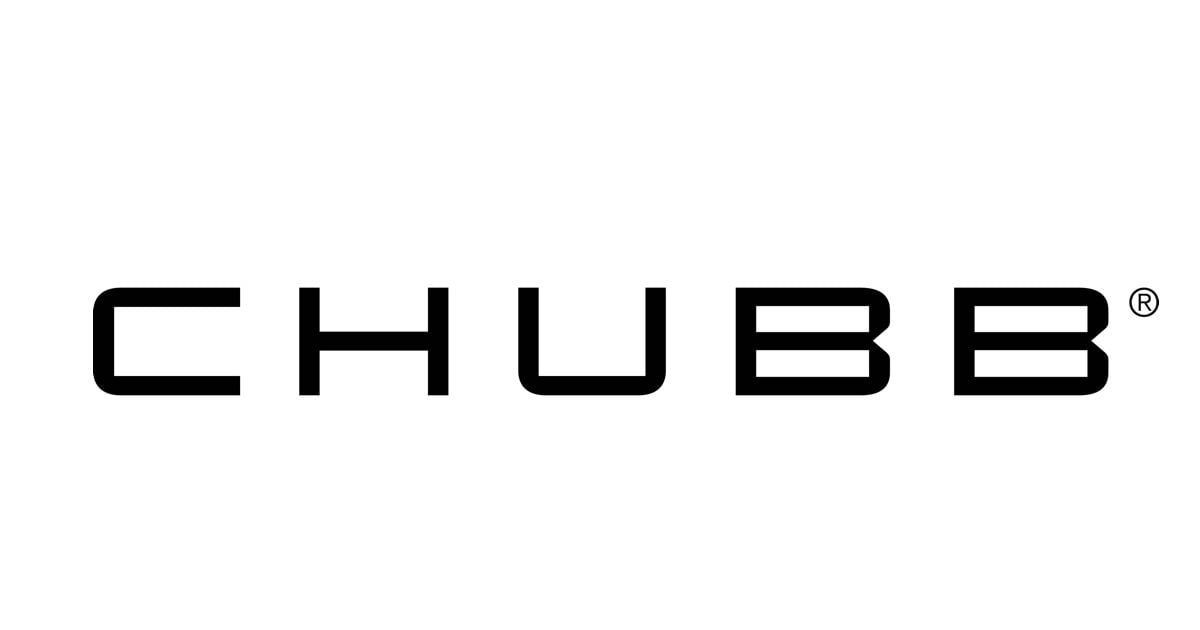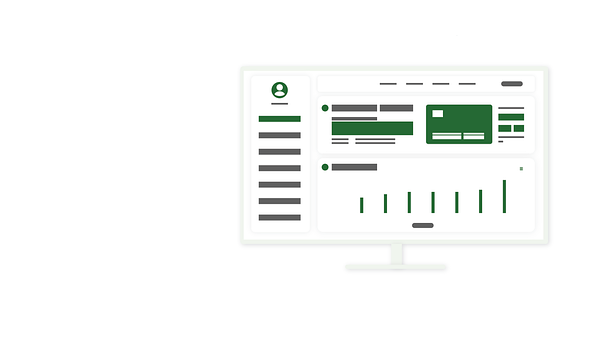Full of natural beauty and Southern charm, it’s no wonder more than five million people call South Carolina home. But if you own a house here, you’ll also want to make sure you’re prepared for the state’s natural disasters, including hurricanes, tropical storms and tornadoes. Having the best home insurance in South Carolina means getting the right coverage at a price you can afford.
NerdWallet analyzed rates from insurers across the state to find the best South Carolina homeowners insurance options.
Note: Due to underwriting practices and market volatility, some companies in this article may no longer write new policies in your area.
The best homeowners insurance in South Carolina
If you’re looking to buy homeowners insurance from a well-rated national brand, consider one of these insurers from NerdWallet’s list of the Best Homeowners Insurance Companies.
| Company | NerdWallet star rating | Average annual rate |
|---|---|---|
| Chubb | 5.0 NerdWallet rating | $1,195 |
| State Farm | 5.0 NerdWallet rating | $1,495 |
| Cincinnati Insurance | 4.5 NerdWallet rating | $1,380 |
| Travelers | 4.5 NerdWallet rating | $3,665 |
| Kin | 4.5 NerdWallet rating | Not available |
| USAA* | 5.0 NerdWallet rating | $1,850 |
| *USAA homeowners policies are available only to active military, veterans and their families. | ||
More about the best home insurance companies in South Carolina
See more details about each company to help you decide which one is best for you.

Chubb
5.0
Coverage options
Discounts
NAIC complaints
Chubb generally serves affluent policyholders with high-value homes, offering lofty coverage limits and plenty of perks. For example, the company covers water damage from backed-up sewers and drains, and pays to bring your home up to the latest building codes during reconstruction after a claim. (Many insurers charge more for these types of coverage.)
South Carolina homeowners can also sign up for free Wildfire Defense Services. These services include personalized recommendations for protecting your home and deployment of firefighters to your house if a wildfire is approaching.
Learn more with our Chubb homeowners insurance review.
State Farm
5.0
Coverage options
Discounts
NAIC complaints
As America’s largest insurer, State Farm stands out for its long list of coverage options. Its policies generally include extra dwelling coverage in case it costs more than expected to rebuild your home after a covered disaster. You may also be able to add coverage for things like identity theft, damage from backed-up drains and personal injury liability.
State Farm offers a free Ting device as a perk for home insurance policyholders. Ting is a smart plug that monitors your home’s electrical network to help prevent fires.
Learn more with our State Farm homeowners insurance review.

Cincinnati Insurance
4.5
Coverage options
Discounts
NAIC complaints
Cincinnati Insurance sells homeowners policies through independent agents, with various options for standard and high-value homes. You may be able to add coverage for things like identity theft, personal cyber attacks or certain types of water damage.
Cincinnati may offer you a discount for bundling home and auto insurance, having a newer home, installing a centrally monitored alarm system or going a certain amount of time without filing a claim.
Learn more with our Cincinnati Insurance homeowners insurance review.
Travelers
4.5
Coverage options
Discounts
NAIC complaints
Travelers offers a robust online experience. You can use the website to get a homeowners insurance quote, file and track claims, make payments and learn about insurance basics.
Its coverage offerings are similarly strong. For example, you may be able to add extra coverage in case the dwelling limit on your home isn’t enough to rebuild your house after a disaster. One unique option is Travelers’ green home coverage, which pays extra if you want to use eco-friendly materials when repairing or rebuilding your home after a covered claim.
Learn more in our Travelers homeowners insurance review.

Kin
4.5
Coverage options
Discounts
NAIC complaints
Founded in 2016, Kin is an insurance startup that sells policies directly to consumers. Its South Carolina policies generally have three separate deductibles — one for hurricanes, one for wind and hail and one for all other claims. A deductible is the amount of a claim you’re responsible for.
Kin offers discounts for things like windproofing your home, having a home security system and going for a certain period of time without filing a claim.
For more information, read our Kin home insurance review.

USAA
5.0
Coverage options
Discounts
NAIC complaints
USAA sells homeowners insurance to veterans, active military members and their families. If that description fits you, you may want to consider a USAA policy. That’s because the company’s homeowners insurance has certain features that other insurers may charge extra for.
For example, USAA automatically covers your personal belongings on a “replacement cost” basis. Many companies pay out only what your items are worth at the time of the claim, which means you may not get much for older items. USAA pays enough for you to buy brand-new replacements for your stuff.
Learn more in our USAA homeowners insurance review.
How much does homeowners insurance cost in South Carolina?
The average annual cost of home insurance in South Carolina is $2,055. That’s 13% more than the national average of $1,820.
In most U.S. states, including South Carolina, many insurers use your credit-based insurance score to help set rates. Your insurance score is similar but not identical to your traditional credit score.
In South Carolina, those with poor credit pay an average of $3,840 per year for homeowners insurance, according to NerdWallet’s rate analysis. That’s 87% more than those with good credit.
Average cost of homeowners insurance in South Carolina by city
How much you pay for home insurance in South Carolina depends on where you live. For example, the average cost of homeowners insurance in Charleston is $3,270 per year. Meanwhile, in Columbia, homeowners insurance costs about $1,690 per year, on average.
| City | Average annual rate | Average monthly rate |
|---|---|---|
| Aiken | $1,655 | $138 |
| Anderson | $1,640 | $137 |
| Beaufort | $2,715 | $226 |
| Charleston | $3,270 | $273 |
| Columbia | $1,690 | $141 |
| Conway | $2,705 | $225 |
| Easley | $1,560 | $130 |
| Florence | $2,040 | $170 |
| Fort Mill | $1,475 | $123 |
| Goose Creek | $2,650 | $221 |
| Greenville | $1,630 | $136 |
| Greenwood | $1,650 | $138 |
| Greer | $1,525 | $127 |
| Lancaster | $1,710 | $143 |
| Lexington | $1,645 | $137 |
| Mount Pleasant | $3,385 | $282 |
| Myrtle Beach | $3,740 | $312 |
| North Augusta | $1,635 | $136 |
| North Charleston | $2,700 | $225 |
| Rock Hill | $1,735 | $145 |
| Simpsonville | $1,500 | $125 |
| Spartanburg | $1,540 | $128 |
| Summerville | $2,550 | $213 |
| Sumter | $1,885 | $157 |
| West Columbia | $1,650 | $138 |
» MORE: What’s the average cost of homeowners insurance?
The cheapest home insurance in South Carolina
Here are the insurers we found with average annual rates below the South Carolina average of $2,055.
| Company | NerdWallet star rating | Average annual rate |
|---|---|---|
| Chubb | 5.0 NerdWallet rating | $1,195 |
| Allstate | 4.0 NerdWallet rating | $1,200 |
| Cincinnati Insurance | 4.5 NerdWallet rating | $1,380 |
| State Farm | 5.0 NerdWallet rating | $1,495 |
| Heritage | Not rated | $1,500 |
| Universal | Not rated | $1,625 |
| Auto-Owners | 4.0 NerdWallet rating | $1,750 |
| USAA* | 5.0 NerdWallet rating | $1,850 |
| *USAA homeowners policies are available only to active military, veterans and their families. | ||
» MORE: The cheapest homeowners insurance
What to know about South Carolina homeowners insurance
Every state has factors that will influence homeowners’ decisions about the type of insurance they buy. South Carolina has seen many natural disasters, including often-devastating hurricanes. Here’s how to check whether your homeowners insurance has the right coverage.
Hurricanes and tropical storms
Hurricanes and other tropical storms can cause massive damage with their potent combination of wind and water. South Carolina is particularly susceptible with its 200 miles of coastline. Unfortunately, standard homeowners insurance policies may not cover all damage from hurricanes.
Most homeowners insurance policies pay for damage from wind but not flooding. However, a separate deductible may apply to wind or hurricane claims. A homeowners insurance deductible is the amount of a claim you’re responsible for.
For example, your policy may have a $1,000 deductible for most claims and a 1% deductible for wind or hail claims. So if your house has $250,000 worth of dwelling coverage, you’d have to pay for the first $2,500 of wind or hail damage yourself.
If your house is in a high-risk coastal location, your insurance carrier may not include wind coverage in your homeowners policy. You can buy separate wind coverage through private insurance companies or the South Carolina Wind Pool.
» MORE: Complete guide to hurricane insurance
Flooding
It doesn’t always take a hurricane to cause flooding in South Carolina. Heavy rain can also lead to problems in your home if it causes a creek to overflow or it comes down too quickly to drain properly. Standard homeowners insurance generally won’t cover this type of damage.
If you’re at risk, consider buying separate flood insurance. (Your lender may even require you to do so if you live in a flood plain.)
To find out your home’s risk of flooding, put your address into the Federal Emergency Management Agency's flood maps or visit RiskFactor.com, a website from the nonprofit First Street Foundation. With extreme weather growing more common due to climate change, even homeowners in less risky areas may want to consider buying flood insurance to protect their properties.
» MORE: How to choose the best flood insurance
Tornadoes
South Carolina gets almost a dozen tornadoes per year. While these fierce storms are relatively rare, they can cause major destruction to your home. As long as your policy covers wind damage — and most homeowners policies do, unless you live on the coast — you have coverage for tornado damage.
» MORE: Home insurance calculator: Estimate your rate
South Carolina insurance department
In South Carolina, the Department of Insurance oversees the insurance industry. Its website is a valuable resource for shopping for home insurance or filing complaints against your insurance company. You can reach the agency by emailing consumers@doi.sc.gov or calling 800-768-3467.
Looking for more insurance in South Carolina? Check out the cheapest car insurance in South Carolina.
Amanda Shapland contributed to this story.
NerdWallet averaged rates for 40-year-old homeowners from various insurance companies in every ZIP code across the state. All rates are rounded to the nearest $5.
Sample homeowners were nonsmokers with good credit living in a single-family, two-story home built in 1984. They had a $1,000 deductible and the following coverage limits:
-
$300,000 in dwelling coverage.
-
$30,000 in other structures coverage.
-
$150,000 in personal property coverage.
-
$60,000 in loss of use coverage.
-
$300,000 in liability coverage.
-
$1,000 in medical payments coverage.
We made minor changes to the sample policy in cases where rates for the above coverage limits or deductibles weren’t available.
We changed the credit tier from “good” to “poor,” as reported to the insurer, to see rates for homeowners with poor credit.
These are sample rates generated through Quadrant Information Services. Your own rates will be different.
Star rating methodology
NerdWallet’s homeowners insurance ratings reward companies for customer-first features and practices. Ratings are based on weighted averages of scores in several categories, including financial strength, consumer complaints, coverages, discounts and online experience. These ratings are a guide, but we encourage you to shop around and compare several insurance quotes to find the best rate for you. NerdWallet does not receive compensation for any reviews. Read our full homeowners insurance rating methodology.
Complaint methodology
NerdWallet examined complaints received by state insurance regulators and reported to the National Association of Insurance Commissioners in 2019-2021. To assess how insurers compare to one another, the NAIC calculates a complaint index each year for each subsidiary, measuring its share of total complaints relative to its size, or share of total premiums in the industry. To evaluate a company’s complaint history, NerdWallet calculated a similar index for each insurer, weighted by market shares of each subsidiary, over the three-year period. NerdWallet conducts its data analysis and reaches conclusions independently and without the endorsement of the NAIC. Ratios are determined separately for auto, home (including renters and condo) and life insurance.





